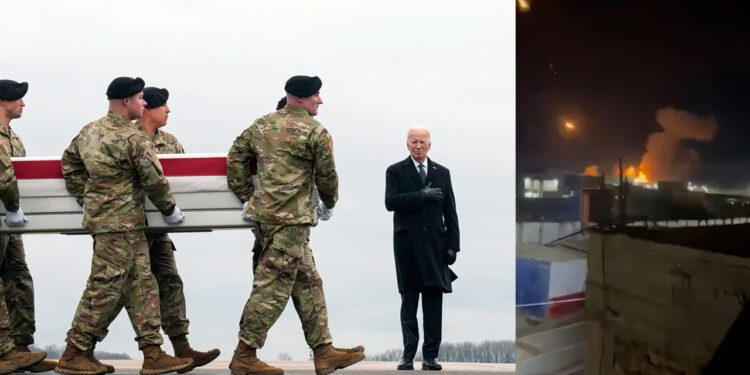Following US airstrikes on Iran-backed militants in Iraq and Syria, both countries warned of dire consequences in response. The offensive, a retaliation for the deaths of three American soldiers, has escalated tensions, with civilian casualties reported and international calls for de-escalation amid a wider regional conflict.

Following a drone attack in Jordan that killed three US troops, the United States executed widespread airstrikes on Iran-backed facilities in Iraq and Syria, significantly escalating regional tensions. These strikes, larger than any previous actions since October, were in direct response to the attack and ongoing assaults on US forces, protesting Israel’s war in Gaza.
The US military action targeted 85 sites, employing over 125 precision-guided munitions, including attacks by B-1 bombers from Dyess Air Force Base, Texas. The operation aimed at command and control centres, logistics hubs, and weapons storage used by Iran-backed militias, marking a robust US stance against the growing threat from these groups.
The strikes resulted in at least 16 deaths in Iraq, including civilians, and significant damage in Syria, sparking warnings of “unforeseen consequences” from both nations. The US’ actions, perceived as violations of sovereignty, have drawn criticism from Iraq, Syria, and Iran, heightening fears of further instability in the Middle East.
Amid these developments, the UK expressed steadfast support for the US’ right to self-defence, while the EU’s foreign policy chief Josep Borrell urged for de-escalation.
As Secretary of State Antony Blinken prepares for a diplomatic tour in the Middle East, the focus remains on fostering ceasefires and addressing the humanitarian situation in Gaza, amidst a backdrop of intensified conflict and calls for a comprehensive response to protect US personnel and interests.








Leave A Comment